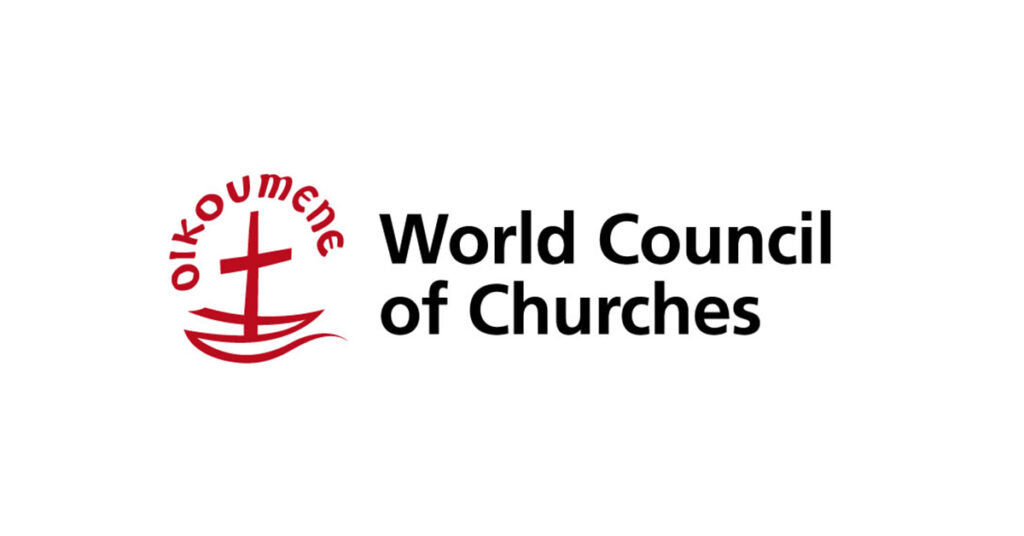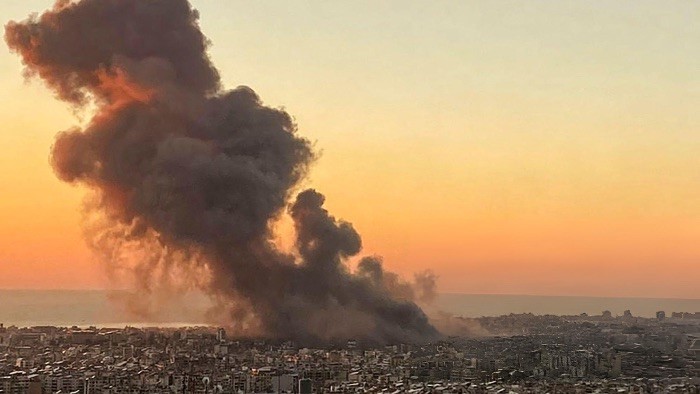WCC news: Church leaders ask for immediate ceasefire in Lebanon
An online meeting was convened on 4 October by the World Council of Churches (WCC) to express solidarity and support, and to provide a safe and constructive space for sharing, reflection, and discussion on the critical challenges currently facing Lebanon. The Middle East Council of Churches and ACT Alliance also participated in the virtual meeting.

WCC general secretary Rev. Prof. Dr Jerry Pillay said in his opening remarks: “We are extremely concerned by what is happening in Gaza and now extended to Lebanon. It is hoped that this online engagement would communicate to you that you are not alone, the WCC and our ecumenical partners stand with you in your struggles, uncertainty and time of insecurity. Despite the distance we are with you in prayers, thoughts, and spirit.”
Pillay added: “We heard the painful stories of displaced and homeless people in Lebanon, the collective measures of people’s anxieties, destruction of properties, the spread of diseases, and the disruption and closure of educational institutions. We were deeply moved and troubled by these stories.”
Middle East Council of Churches (MECC) secretary general Dr Michel Abs, who lives in Lebanon, said that the Lebanese are living in a state of total insecurity due to the daily bombings in Lebanon. “The aggressors are supposedly targeting Lebanese of a certain political affiliation,” he said. “But in the actual displacement situation, nobody knows what the political identity of his new displaced neighbour is.”
Abs reflected that the world has witnessed the demolition of buildings and the killing of hundreds of innocent people just to reach a specific bunch of people. He added that “the Lebanese are in a state of generalized anxiety and are at the brink of a collective nervous breakdown. The destruction is becoming also a daily practice.”
Abs reflected that all the villages along the Palestinian borderline have been destroyed. “Some villages do not exist anymore. Some urban areas too. We are aware, compared to what has happened in Palestine for 76 years, that there is always a pretext to destroy massive parts of the country, which is being totally ravaged,” he said.
Abs expressed, “The future is gloomy, and a huge uncertainty covers the country. We fear for our natural resources, and we fear more the threat of putting Lebanon under siege.” He further pointed out, “Addressing the growing spread of hate speech is crucial, as it threatens to further fuel polarization, incite violence, and undermine social cohesion.”
Prof. Dr Nora Bayrakdarian, vice moderator of the WCC Commission of the Churches on International Affairs and professor at Lebanese University, said that the ongoing war is very devastating and the problems behind it are very complex because the Lebanese context is very complicated.
“There are new regional configurations and Lebanon displays a strong linkage between the internal, and the regional and international contexts, beside the complexities of the Lebanese system itself that is very penetrated and there is no local consensus on major issues faced by the country,” she said. “Today we are in an emergency situation and the new warfare shaped by AI is not only the source of a humanitarian catastrophic situation in Lebanon but also raises a number of open questions on the future of humanity.”
Bayrakdarian stressed that it is urgent to demand a ceasefire, adopting negotiations as a means for a peaceful settlement, and provide humanitarian assistance for displaced and injured people.
ACT Alliance general secretary Rudelmar Bueno de Faria noted that ACT Alliance members are already on the ground in Lebanon, actively responding to the multiple crises that continue to afflict the country. He noted that, “The recent bombings have only deepened the ongoing humanitarian catastrophe and exacerbated economic pressures on an already fragile system,”
De Faria urged the international community to intervene immediately. “Failure to do so risks rendering all international humanitarian and human rights mechanisms obsolete, leaving millions vulnerable and the region in deeper instability,” he said.
The Lebanese participants requested the WCC to call for an urgent ceasefire, secure relief, and humanitarian aid for the destitute population; urge upholding international law; add pressure on the international community to intervene, arrange a special day of prayer, and call for the election of a president in Lebanon to help restore the State and its ability to negotiate a ceasefire.
Pillay concluded the meeting by saying, “I hear the request for the WCC to take action to work for a ceasefire, to work with the UN on a diplomatic solution, to support urgent humanitarian assistance needed through ACT Alliance and partners, and to tell the true stories of local realities. The WCC will continue to work and walk alongside you as we have been doing in Gaza and in many other parts of the world.”

